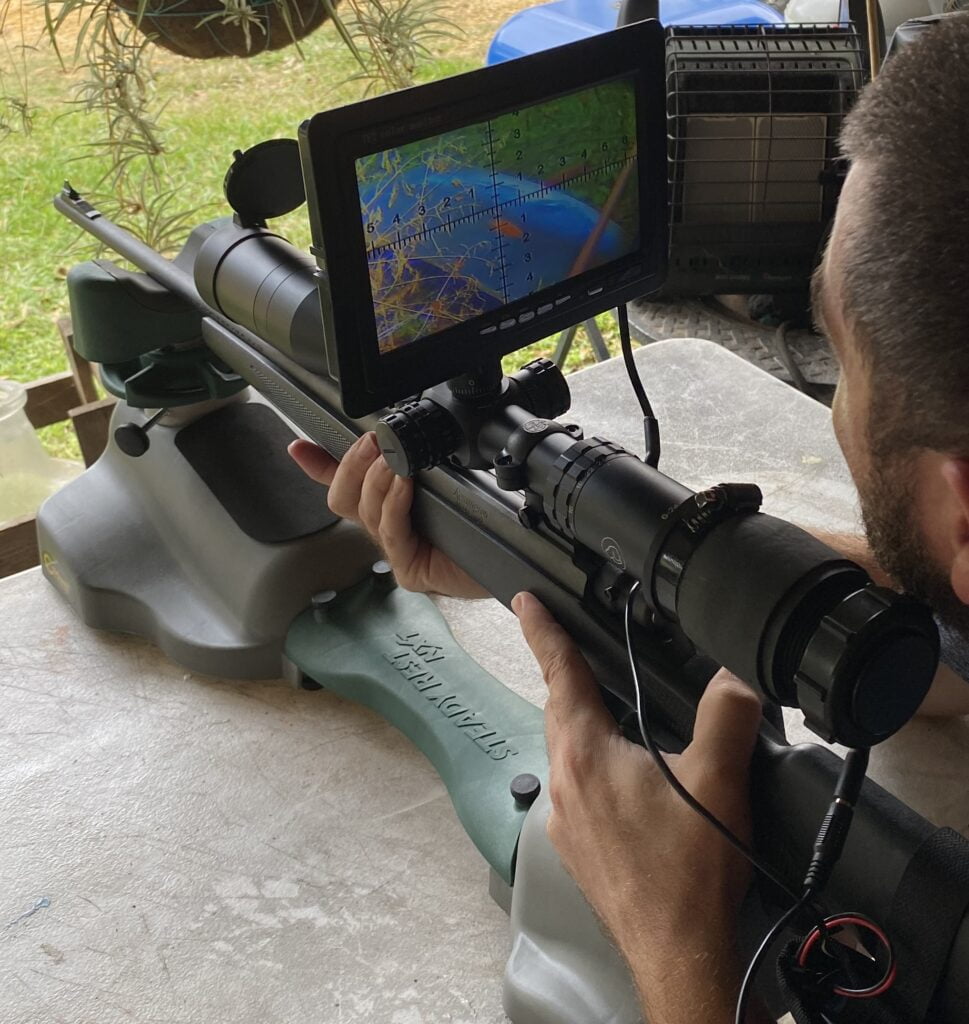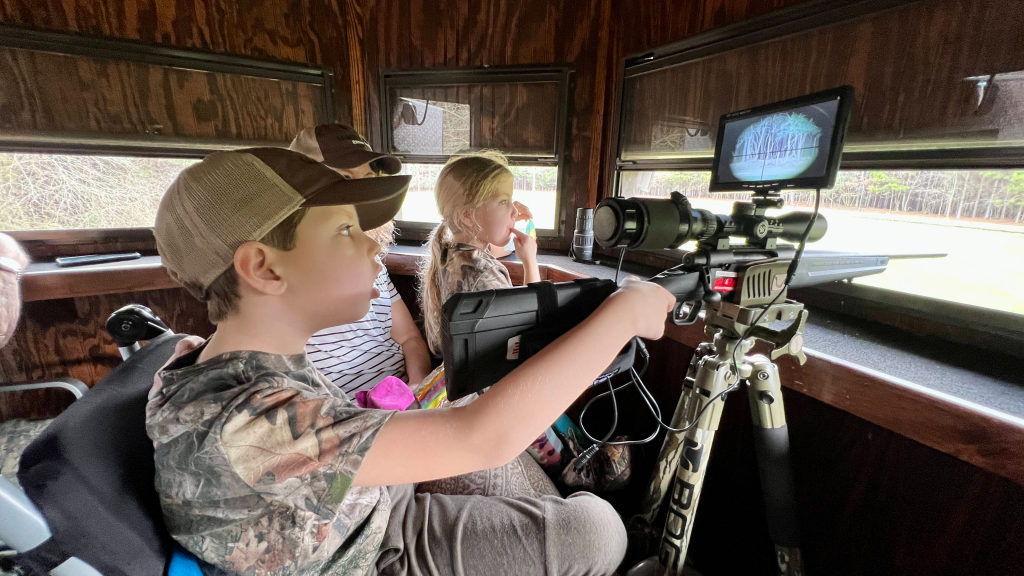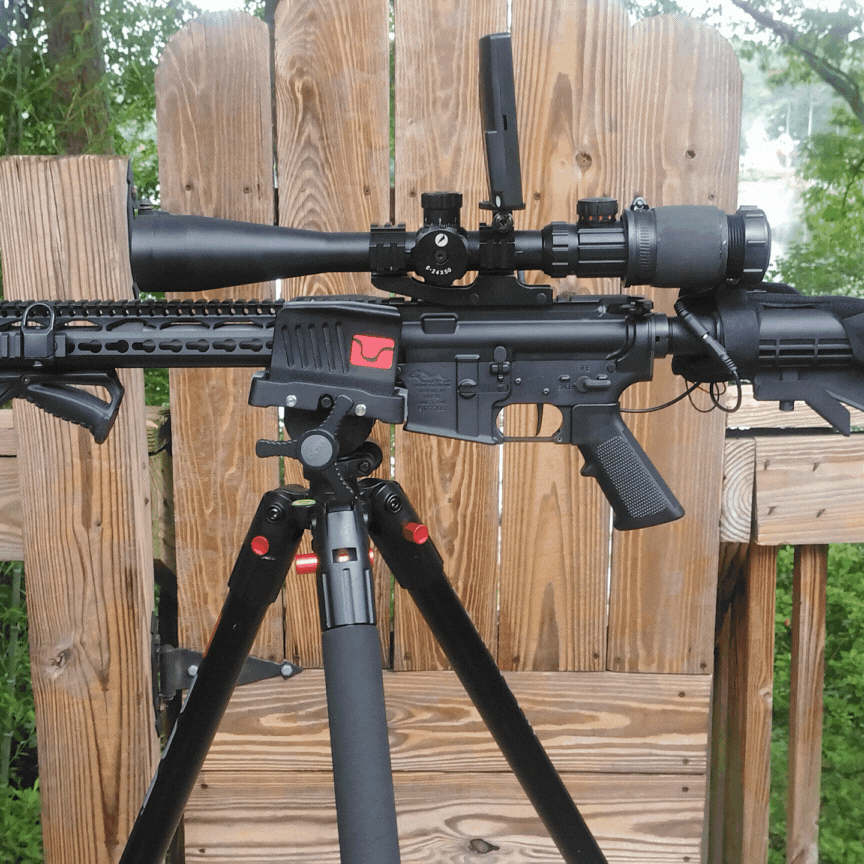Adaptive Strategies for Hunting and Shooting: Navigating Low Vision and Mobility Barriers with Confidence

As a passionate hunter and shooter, I have always been drawn to the thrill of the chase and the precision of marksmanship. However, I understand the challenges that individuals with low vision and mobility disabilities face when pursuing these activities. In this article, I aim to shed light on adaptive strategies for hunting and shooting, offering insights into how individuals can overcome visual and mobility barriers with confidence. By understanding the tools, techniques, and support available, hunters and shooters with disabilities can continue to pursue their passions and enjoy the great outdoors.
Understanding Adaptive Hunting and Shooting
Adaptive hunting and shooting involve the use of specialized techniques, equipment, and support to accommodate individuals with visual and mobility disabilities. It’s essential to recognize that these individuals have the same passion and determination as any other hunter or shooter, and it’s crucial to create an inclusive environment that supports their participation in these activities. By understanding the unique challenges they face, we can work towards developing adaptive strategies that empower them to pursue their interests with confidence.
When it comes to adaptive hunting and shooting, it’s important to consider the specific needs of individuals with visual disabilities, such as age-related macular degeneration, amblyopia (lazy eye), astigmatism, cataracts, diabetic retinopathy, and blindness. Similarly, understanding the challenges faced by those with mobility disabilities, including paraplegia, quadriplegia, amputation, paralysis, cerebral palsy, stroke, multiple sclerosis, muscular dystrophy, arthritis, and spinal cord injury, is crucial in developing effective adaptive strategies.
Overcoming Visual Disabilities in Hunting and Shooting
Individuals with visual disabilities often face unique challenges when hunting and shooting, as these activities require keen eyesight and precise targeting. However, with the right tools and techniques, individuals with visual impairments can overcome these barriers and participate in hunting and shooting activities with confidence.
One of the key tools for individuals with visual disabilities is the adaptive rifle scope. These specialized scopes are designed to enhance visibility and provide additional support for individuals with low vision. By utilizing features such as magnification, contrast enhancement, and customizable reticles, adaptive rifle scopes can empower individuals with visual impairments to improve their accuracy and target acquisition.
In addition to adaptive rifle scopes, individuals with visual disabilities can benefit from specialized training programs that focus on honing their shooting skills and adapting to their specific needs. These programs can provide valuable guidance on techniques for aiming, tracking targets, and adjusting to environmental conditions, ultimately enhancing the overall shooting experience for individuals with visual impairments.
Tools and Equipment for Adaptive Hunting and Shooting
In the realm of adaptive hunting and shooting, the availability of specialized tools and equipment plays a vital role in empowering individuals with disabilities to participate in these activities. From adaptive rifle scopes to customized shooting platforms, there are various tools and equipment designed to enhance accessibility and improve the overall experience for individuals with visual and mobility disabilities.
For individuals with visual disabilities, adaptive rifle scopes are a game-changer, providing enhanced visibility and targeting capabilities. These scopes often feature adjustable magnification, illuminated reticles, and contrast enhancement settings, allowing individuals with low vision to acquire and track targets with greater ease and precision.
Apart from adaptive rifle scopes, other essential equipment for adaptive hunting and shooting includes shooting rests, stabilizing bipods, and customized firearm mounts. These accessories are designed to provide stability and support for individuals with mobility disabilities, enabling them to maintain a steady shooting position and improve their accuracy while minimizing physical strain.

Navigating Mobility Barriers in Hunting and Shooting
Mobility barriers can pose significant challenges for individuals with disabilities who wish to engage in hunting and shooting activities. Whether it’s navigating rugged terrain or maintaining a stable shooting stance, individuals with mobility impairments require specialized strategies and support to overcome these barriers and pursue their passion for hunting and shooting.
In the context of adaptive hunting and shooting, mobility barriers can be addressed through the use of specialized equipment and techniques that cater to the unique needs of individuals with mobility disabilities. From customized shooting platforms to adaptive firearm mounts, there are various solutions available to enhance accessibility and mobility for individuals facing these challenges.
When it comes to navigating mobility barriers in hunting and shooting, it’s essential to consider the specific needs of individuals with different mobility disabilities, including paraplegia, quadriplegia, amputation, paralysis, cerebral palsy, stroke, multiple sclerosis, muscular dystrophy, arthritis, and spinal cord injury. Understanding the distinct challenges and requirements of each disability is crucial in developing effective adaptive strategies that cater to diverse needs.
Adaptive Strategies for Different Mobility Disabilities
Individuals with mobility disabilities often require adaptive strategies that address their specific needs and challenges when engaging in hunting and shooting activities. Whether it’s achieving stability while aiming or maneuvering through challenging terrain, individuals with mobility impairments can benefit from tailored approaches and techniques that empower them to participate with confidence.
For individuals with mobility disabilities such as paraplegia and quadriplegia, specialized shooting platforms and firearm mounts can provide essential support, allowing them to maintain a stable shooting stance and align their sights with greater ease. Additionally, the use of stabilizing bipods and shooting rests can further enhance stability and control, enabling individuals with mobility impairments to achieve improved accuracy and precision.
In the case of individuals with amputations or paralysis, customized firearm mounts and adaptive shooting accessories can play a crucial role in facilitating their participation in hunting and shooting activities. By providing support and stability, these adaptive solutions empower individuals with mobility disabilities to overcome physical barriers and engage in these activities with confidence and independence.
Training and Resources for Adaptive Hunting and Shooting
Effective training and access to valuable resources are essential components of adaptive hunting and shooting, enabling individuals with disabilities to develop their skills, enhance their knowledge, and build confidence in pursuing these activities. By providing specialized training programs and comprehensive resources, the hunting and shooting community can create a more inclusive and supportive environment for individuals with visual and mobility disabilities.
Specialized training programs tailored to the needs of individuals with visual and mobility disabilities play a crucial role in equipping them with the skills and knowledge necessary to engage in hunting and shooting activities with confidence. These programs focus on adapting shooting techniques, utilizing specialized equipment, and navigating environmental challenges, ultimately empowering individuals with disabilities to pursue their passion for hunting and shooting.
In addition to training programs, access to comprehensive resources such as educational materials, online forums, and supportive networks can provide individuals with disabilities valuable guidance and support in their journey towards adaptive hunting and shooting. These resources offer a wealth of information on adaptive equipment, techniques, legal considerations, and community support, empowering individuals with disabilities to make informed decisions and connect with like-minded individuals.
Adaptive Rifle Scopes for Improved Accuracy
Adaptive rifle scopes are instrumental in enhancing the accuracy and precision of individuals with visual disabilities, providing them with the necessary support to overcome challenges related to low vision and target acquisition. By utilizing advanced features and customizable settings, adaptive rifle scopes offer a range of benefits that significantly improve the shooting experience for individuals with visual impairments.
One of the key features of adaptive rifle scopes is adjustable magnification, which allows individuals with low vision to zoom in on targets with greater clarity and precision. This feature is particularly beneficial for individuals with conditions such as age-related macular degeneration and diabetic retinopathy, enabling them to compensate for reduced visual acuity and maintain a clear line of sight on their targets.
In addition to adjustable magnification, adaptive rifle scopes often incorporate illuminated reticles and contrast enhancement settings, which enhance visibility and target acquisition in various lighting conditions. These features enable individuals with visual disabilities to effectively track and aim at their targets, even in challenging environments, ultimately improving their overall shooting accuracy and performance.
Community Support and Organizations for Adaptive Hunting and Shooting
Community support and the presence of dedicated organizations play a pivotal role in fostering an inclusive and supportive environment for individuals with disabilities who are passionate about hunting and shooting. By promoting awareness, providing resources, and organizing inclusive events, these community initiatives and organizations contribute to the empowerment and inclusion of individuals with visual and mobility disabilities in the hunting and shooting community.
Dedicated organizations focused on adaptive hunting and shooting strive to create a supportive network for individuals with disabilities, offering a range of resources, training opportunities, and community events tailored to their specific needs. These organizations play a crucial role in connecting individuals with disabilities, providing them with valuable support, and advocating for inclusive practices within the hunting and shooting community.
Furthermore, community support groups and online forums serve as valuable platforms for individuals with disabilities to connect, share experiences, and access information related to adaptive hunting and shooting. These platforms enable individuals to seek guidance, build connections, and exchange valuable insights, ultimately fostering a sense of belonging and empowerment within the hunting and shooting community.
Legal and Ethical Considerations in Adaptive Hunting and Shooting
In the context of adaptive hunting and shooting, it’s essential to uphold legal and ethical considerations that ensure the safety, fairness, and inclusivity of these activities for individuals with disabilities. By adhering to established regulations, promoting ethical practices, and advocating for accessibility, the hunting and shooting community can create an environment that respects the rights and capabilities of individuals with visual and mobility disabilities.
Legal considerations in adaptive hunting and shooting encompass adherence to relevant laws and regulations governing the use of adaptive equipment, accessibility standards for hunting and shooting facilities, and the rights of individuals with disabilities to participate in these activities without discrimination. By upholding legal standards, the hunting and shooting community can ensure that individuals with disabilities are afforded the same opportunities and rights as any other participant.
Ethical considerations in adaptive hunting and shooting revolve around promoting fairness, respect, and inclusivity within the community, fostering an environment that values the contributions and capabilities of individuals with disabilities. This includes advocating for accessible facilities, fair competition, and the recognition of adaptive strategies that empower individuals with disabilities to engage in hunting and shooting activities with confidence and independence.
Conclusion
In conclusion, adaptive strategies for hunting and shooting play a crucial role in empowering individuals with visual and mobility disabilities to pursue their passion for these activities with confidence. By understanding the unique challenges they face and the tools, techniques, and support available, the hunting and shooting community can create an inclusive and supportive environment that accommodates individuals of diverse abilities. From specialized equipment such as adaptive rifle scopes to comprehensive training programs and community support, adaptive hunting and shooting initiatives contribute to the empowerment and inclusion of individuals with disabilities in the pursuit of their outdoor passions.
CTA: Get Digital Crosshairs Adaptive rifle scope clip-on

As the hunting and shooting community continues to embrace adaptive strategies and advocate for inclusivity, it’s essential to recognize the capabilities and determination of individuals with disabilities and provide the necessary support that enables them to participate with confidence and independence. Through collaborative efforts, awareness, and the promotion of adaptive practices, we can create a more inclusive and supportive environment for individuals with visual and mobility disabilities, ensuring that they can navigate low vision and mobility barriers with confidence and enjoy the exhilaration of hunting and shooting.
www.digitalcrosshairs.net or call 404-590-6513 for more information


